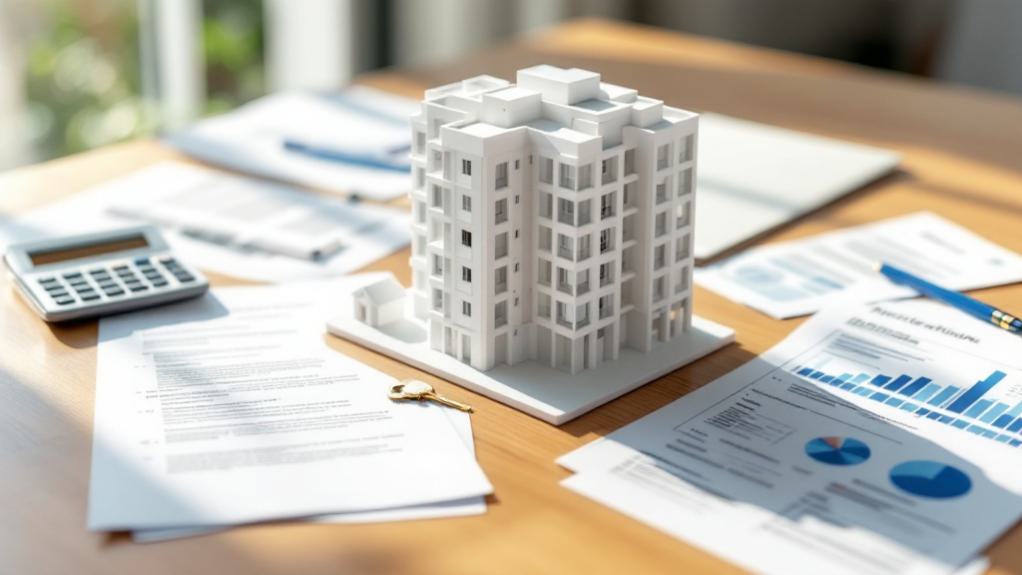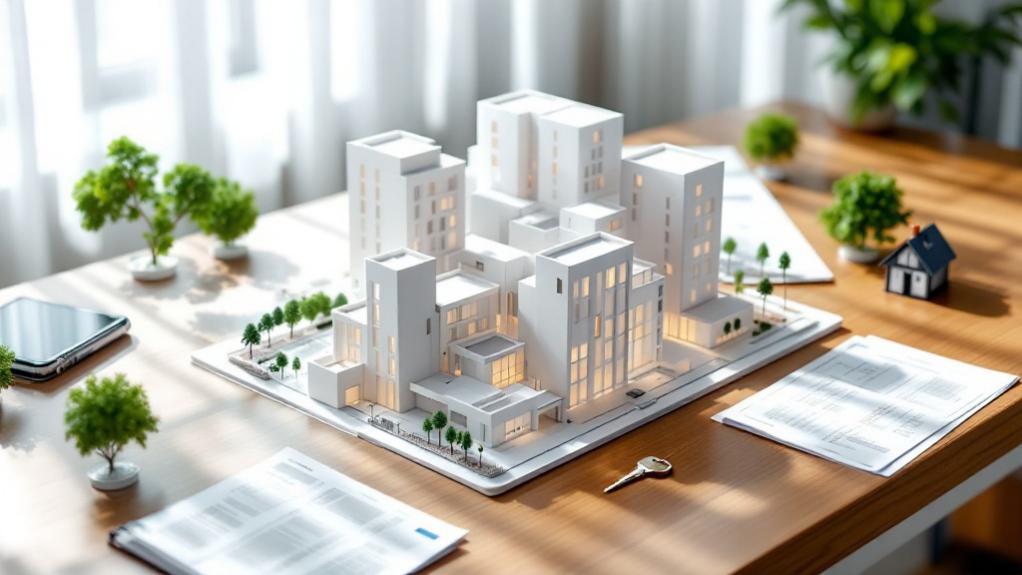Procuring an HDB BTO flat in Singapore requires meeting strict eligibility criteria, including citizenship requirements, income ceilings, and property ownership restrictions. The process commences with financial preparation, followed by application during quarterly sales launches, ballot participation, flat selection if successful, signing the Agreement for Lease, and awaiting construction completion—typically spanning three to five years. Applicants must navigate various payment stages, including option fees, downpayment, and progressive payments during construction phases. The journey encompasses numerous considerations across eligibility, financing, and classification frameworks.

While steering through Singapore’s housing market presents numerous challenges for prospective homeowners, the Build-To-Order (BTO) flat program offered by the Housing & Development Board (HDB) remains the most accessible pathway to homeownership for many Singaporean citizens.
Eligibility verification constitutes the initial phase of the BTO acquisition process, requiring at least one Singapore citizen applicant who has attained a minimum age of 21 years, adheres to income ceiling parameters of $14,000 for families or $7,000 for singles, and possesses no private property within the preceding 30-month timeframe.
Upon confirming eligibility criteria, applicants must secure an HDB Flat Eligibility (HFE) Letter, a pivotal document retaining nine-month validity that substantiates qualification for purchase, CPF housing grant eligibility, and potential HDB loan approval.
Financial planning represents a critical cornerstone of the procurement strategy, necessitating thorough budgeting that encompasses downpayment requirements—10% for HDB financing versus 20% for commercial bank loans—alongside ancillary expenditures including option fees, stamp duties, and legal costs.
Prospective buyers monitor the quarterly BTO sales launches published on the official HDB platform, evaluating project locations, available unit configurations, estate maturity classification, and proximity to essential amenities.
During the designated one-week application window, candidates submit their preferences for a single flat type within one project only, remitting a non-refundable $10 application fee, after which a computerized ballot determines allocation sequence.
Successful applicants receive notification to book their units within a four-week timeframe, requiring preparation of requisite documentation and payment of an option fee ranging from $500 to $2,000 depending on flat size.
The Agreement for Lease must be executed within four months of booking, followed by a construction waiting period typically spanning three to five years during which progressive payments are remitted.
The procurement process culminates with a key collection appointment where remaining purchase costs are settled, legal formalities completed, and renovation commencement authorized within the subsequent 30-day period.
First-timer applicants under 30 years of age may benefit from the Staggered Downpayment Scheme when managing their initial financial obligations for their new home, while being aware that BTO flats generally have a median waiting time of 4-4.5 years before completion.
Buyers should also understand the new classification framework for HDB flats which categorizes units as Standard, Plus, or Prime, each having different resale conditions and eligibility requirements.
Frequently Asked Questions
Can I Apply for BTO if I Own Private Property?
Private property owners are ineligible to apply for BTO flats while maintaining ownership of their private residential assets.
Applicants must first dispose of their private property and observe a mandatory 30-month waiting period before submitting a BTO application.
This regulation, established by the Housing Development Board, applies to both local and overseas private residential properties, including any partial interests held in such assets.
An HFE letter becomes requisite for subsequent BTO applications.
How Long Must I Stay in My BTO Before Selling?
The standard Minimum Occupation Period (MOP) for BTO flats is 5 years, commencing from the date of key collection, during which owners must physically occupy the unit without renting it entirely.
Specific exceptions include PLH flats (10-year MOP), Fresh Start Housing Scheme properties (20-year MOP), and SERS replacement flats (potentially 7-year MOP).
Upon MOP completion, owners gain the ability to sell their flat on the open market without restrictions and may acquire private property.
What Happens if I Break up With My Fiancé(E)?
When couples terminate their engagement after applying for a BTO flat, several financial implications emerge.
Applicants face forfeiture of the $10 application fee if cancellation occurs before flat selection, or loss of the $2,000 option fee if post-booking.
Additionally, a one-year debarment period applies before either party can submit a new HDB application, and first-timer privileges may be reset.
Both individuals must formally notify HDB of the relationship dissolution through established administrative channels.
Can I Choose My Neighbors in a BTO Project?
Applicants cannot directly choose their neighbors in BTO projects. The Housing and Development Board (HDB) allocates units based on ballot queue numbers, wherein applicants select from available inventory when their turn arrives.
The Ethnic Integration Policy further constrains selection by imposing racial quotas in each block.
While friends may apply for the same project, there is no mechanism to guarantee adjacency, as unit selection depends entirely on queue position and remaining inventory.
Are There Tax Implications When Purchasing a BTO Flat?
Several tax implications arise when purchasing a BTO flat, including Buyer’s Stamp Duty (BSD) payable within 14 days of signing the Agreement for Lease at progressive rates of 1-3% based on purchase price.
Property tax becomes applicable annually, calculated on the Annual Value, with preferential rates for owner-occupied residences.
GST at 8% applies to ancillary services such as legal fees and agent commissions, though the flat purchase price itself is GST-exempt.





